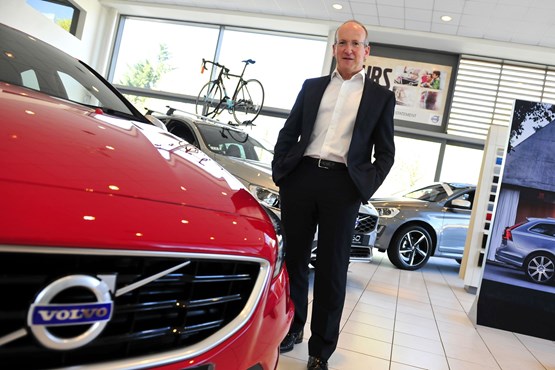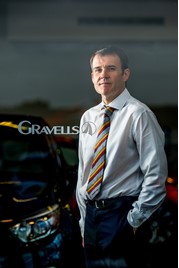Motor retailers have been forced to rethink their entire sales and service practices and strategy, as a direct result of COVID-19.
The requirement for social distancing has compelled dealerships to implement a raft of measures and install the necessary equipment to protect customers and staff, writes Alex Wright.
As a result, most dealers have switched to a fully appointment-based model, limiting the number of customers on site at any one time.
It has also meant staff have had to be more efficient than before when dealing with customers: starting and finishing appointments on time, and maximising their time spent with them.
Retailers have also tried to minimise physical contact between staff and customers for safety reasons by continuing to provide the likes of collection and delivery.
However, this has all come at a great cost to many dealers, meaning a complete overhaul of their traditional way of doing business. It also puts a strain on cashflow and efficiency, although many have successfully adapted to this new normal.
Perrys Group managing director Darren Ardron said COVID-19 had forced him to re-evaluate his whole business and he found that many non-essential costs could be stripped out. He has also been able to make greater efficiencies by running on reduced capacity.
 “We have all realised that from now on we have to run a very tight ship,” said Ardron. “Accordingly, we have had to adapt our business model and do a lot
“We have all realised that from now on we have to run a very tight ship,” said Ardron. “Accordingly, we have had to adapt our business model and do a lot
more work on an appointment basis, allowing us to allocate our resources more efficiently.”
Another lesson learned is the need to communicate clearly to the customer so they know exactly what to expect, said Ardron. This level of communication has extended to management and staff, with the adoption of Zoom and Microsoft Teams across the group, to reduce expenses such as travel, he said.
“If you tell the customer what to expect, usually they are fine with it,” said Ardron. “It’s when you don’t keep them in the loop that you get yourself into hot water.”
CLOSING DEALERSHIPS ON SUNDAYS
Perrys is currently piloting Sunday closures across 10 of its sites to see what effect it has on weekly sales. While it hasn’t made a noticeable difference to sales, Ardron said that it has freed up staff to cover during mid-week, when they are needed most.
“We saw that Sundays weren’t particularly busy for us,” said Ardron. “So, if this is successful, we could roll it out to all 50 of our bases, meaning the 100 or so staff who normally work Sundays can be better deployed to cover mid-week as our call centre deals with Sunday enquiries.”
Clive Brook, managing direcotr of Clive Brook Volvo, said customers have been very understanding of the situation. He has already received much feedback, praising him for the work he has done to put them at ease.
“We have seen an awful lot more of it, and not just in response to marketing questionnaires,” said Brook. “You can see and hear that from customers who have been elsewhere and didn’t feel comfortable or were turned away because perhaps the set-up wasn’t as structured.
 “Because customers can see the effort and energy we are putting in to keep them safe and still deliver the best service, they are much more respectful of our time. That means they are arriving and leaving on time, as well as more focused on what they want.”
“Because customers can see the effort and energy we are putting in to keep them safe and still deliver the best service, they are much more respectful of our time. That means they are arriving and leaving on time, as well as more focused on what they want.”
Initially, Brook’s biggest concern was over unaccompanied test drives, because there’s less control of the sales process, and being able to point out the car’s key features and benefits.
But his fears have been allayed, with conversion rates significantly increasing as, he said, the customer feels more relaxed driving on their own.
“Efficiency has become a greater part of our culture, now,” said Brook. “We’ve become more assertive in our approach to dealing with customers too, particularly in respect to the customer keeping appointments.
“In return, customers are remembering what we have done to help them and have shown loyalty by coming back to us, while enquiry rates are up 60% on last year. It’s a clear sign that everyone is embracing this change together.”
 Jonathan Gravell, managing director of Gravells, said that because his business was primarily focused on cash management, he has been reviewing efficiencies and controls in every department. That has also meant increasing productivity across all roles, he said.
Jonathan Gravell, managing director of Gravells, said that because his business was primarily focused on cash management, he has been reviewing efficiencies and controls in every department. That has also meant increasing productivity across all roles, he said.
As a result of COVID-19, Gravell said his business has had to improve its sanitisation processes too. He has also been proactive in reassuring customers that all services are operating safely again.
“We’ve spent a lot of time putting COVID-19-safe processes in place across our dealership group; screens, sanitisers, personal protective equipment where needed,” said Gravell. “We’ve also enhanced cleaning routines, as well as communicating the new processes with returning staff and reassuring customers.”
A CHALLENGING RESTART FOR CAR SHOWROOMS
However, because at one time he had no firm reopening date, the restart was very challenging, said Gravell, with the need to regularly adapt and update his plans. It has also increased the pressure and stress on staff, he added.
Thanks to strong customer confidence and support, however, sales and service work has exceeded initial forecasts, said Gravell. But none of that would have been possible without all the planning and reorganisation that has gone on behind the scenes, he said.
“All staff have shown incredible flexibility in adapting to the new challenges,” said Gravell. “There continue to be new challenges every day and we continue to make small changes and adapt. Many retailers will be under extreme cashflow pressure come the fourth quarter, so strong processes underlined by a great customer experience will convert more opportunities, generate more revenue and reduce the cost of sale.”
Karl Davis, managing director of Coachworks Consulting, said that because of continued anxiety among those at risk from the virus, the sales process across all departments needs to be as efficient as possible to make them feel safe. Dealers have responded with measures such as better publicised click and collect services and seven-day return policies, he said.
“The use of video has increased and leading suppliers like CitNOW have stepped up with the online training support that they offer,” said Davis. “Split shifts in aftersales have also provided longer opening hours, while supporting social distancing.”
Retailers have, said Davis, proven how quickly they can adapt to new ways of working. However, he added, they need to be consistent in the delivery of all their processes.
“Dealers can overcome this challenge by clearly setting out the process and what’s expected, and then making sure all colleagues comply,” said David. “Also they need to create a culture of constantly checking and assuming nothing.
“These processes need to be backed by spending a moment or two concentrating on the customer themselves, rather than their car needs, process or data capture.”
The challenges faced by the automotive industry have fundamentally changed in recent months. But so has dealers’ resilience and ways of overcoming them.
Ardron concluded: “This has served as a pause and reset moment for the industry. It has allowed us to take a forensic look at our business and decide what is important moving forward.”















Login to comment
Comments
No comments have been made yet.